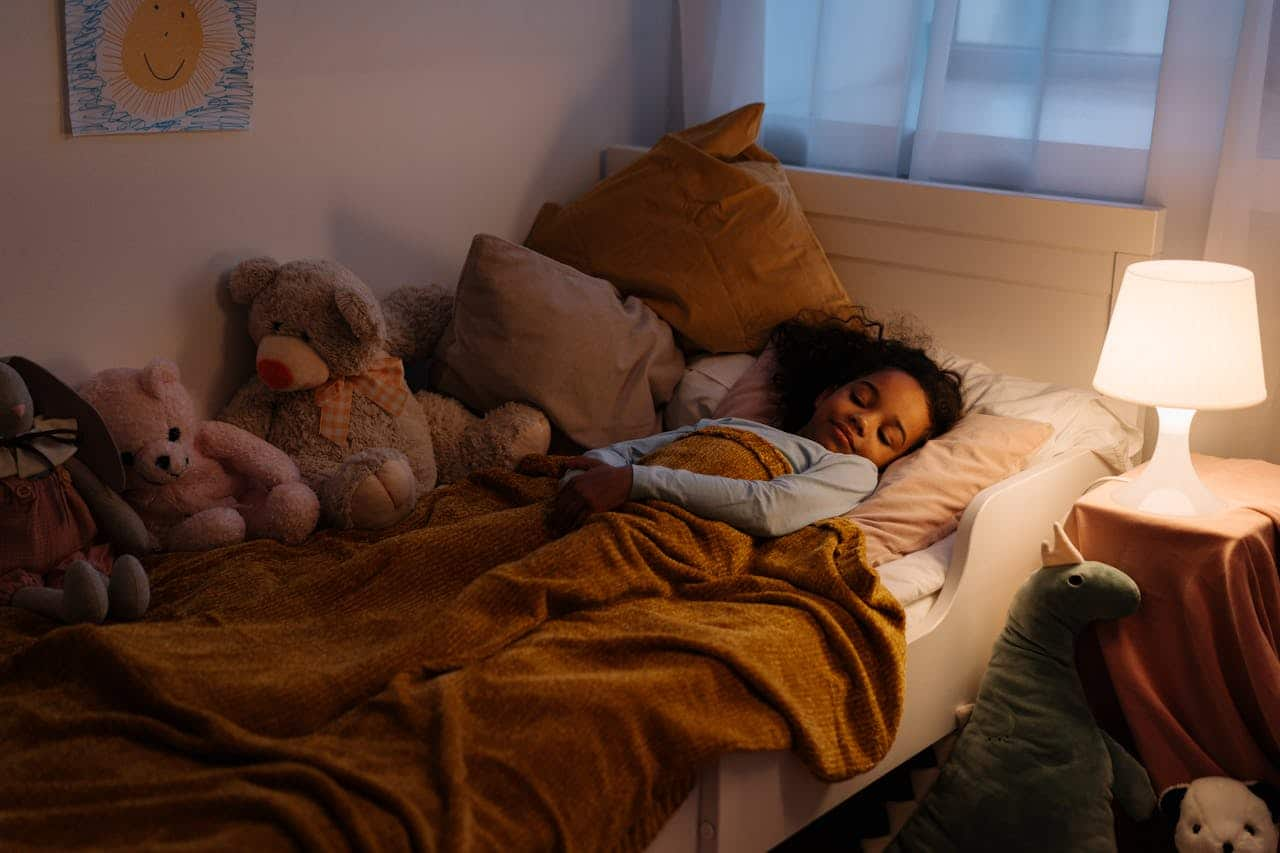You probably know less than 7 hours of sleep at night is unhealthy. Sleep deprivation can make you wake up tired, and less enthusiastic going to work or on errands. And our fast-paced world doesn’t make sleeping enough any easier.
Your age determines the number of hours you sleep every night. How much sleep do you need to function normally? Children between 6 to 12 years, and teenagers from 13 to 18 hours should sleep for about 12 and 10 hours respectively.
Become an insider. Subscribe to our newsletter for more top trending stories like this!
Journal of Clinical Sleep Medicine recommends that adults sleep for at least 7 hours every night and regularly, for optimal health. Though genetic makeup, environmental, medical, and behavioral factors could affect your sleeping patterns.
Read Also: Sleep-Deprived: Get Better Sleep With These 9 Tips
Get mental health books on Amazon.
Why You Shouldn’t Have Less Than 7 Hours of Sleep
Here’s why insufficient sleep isn’t the best option.
Risk of Heart Disease
If you get too little sleep, you’re at risk of high blood pressure, which can lead to heart issues. Both short and long sleep durations can affect your heart.
Disrupts Your Mental Health
Your sleep cycle is composed of sleep stages that control your brain activity. Rapid eye movement (REM) helps your brain process emotional information. So, insufficient sleep can deny you this experience. Also, your emotions could be on a roller coaster. And, this means you’ll have a long tiring day, physically and mentally. And ultimately, burnout.
Decreases Libido
Studies show that sleep deprivation leads to decreased sex drive in women. This shows that people who suffer from insomnia could have low sex desires. And this can lead to anxiety and depression in couples.
Read Also: 7 Parenting Books for Dads in Bookstores for Better Relationships With Your Kids and Partner
Gain Extra Weight
You could wonder how sleeping less than 7 hours contributes to weight gain. Research indicates that sleep loss triggers hormonal imbalance giving you the urge to overeat. And because your appetite will have peaked, overindulging will be unavoidable. So, monitor your sleep duration to establish whether it falls within the recommended amount of sleep.
Become an insider. Subscribe to our newsletter for more top trending stories like this!
If you experience sleep loss or have sleep apnea, chances are that you’ll eat during wake time at night. Weight gain will be the result. Try to establish a consistent bed routine. Tone down things before getting in bed. Keep off your favorite cup of coffee or water near bedtime. Caffeine can interfere with your ability to fall asleep on time or make you sleep fewer hours than normal.
Develop Diabetes
American Academy of Sleep Medicine advises that if you have trouble sleeping or have sleep disorders that affect your sleep duration, it’ll be great if you seek medical help to reduce the chances of developing diabetes. As the saying goes, “Prevention is better than cure.”
Create a sleep schedule and stick to it.
Affects Learning Ability
Studies show that sufficient sleep is important to preteen brains. 9-year-old kids who sleep less than nine hours exhibit aggressive tendencies, anxiety, and inability to learn. Sleep habits change as we age, and so does the ability to stay in the deep sleep phase. Thus, older people (more than 60) tend to forget things.
Develop a bedtime routine and follow medical advice here on achieving 7 hours of sleep every night. Remember Infants and school-age children need one too. Teach them and they’ll probably observe the routine even in adulthood. Don’t forget to see a doctor near you.
Nearly 80% of consumers visit directories with reviews to find a local business. List your business for free in our exclusive Spotcovery Black-Owned Business Directory.
Spotcovery offers unique and fresh daily content on Black culture, lifestyle, and experiences. We talk about everything black, black people, black-owned and black-owned businesses. We also deliver authentic and relevant content that will inform, inspire, and empower you! The future of black media is critical to today’s black experience! Our primary audience includes African Americans, Africans, Afro-Caribbean, and people of African heritage. Black culture is for the culture!
Become an insider. Subscribe to our newsletter for more top trending stories like this!





